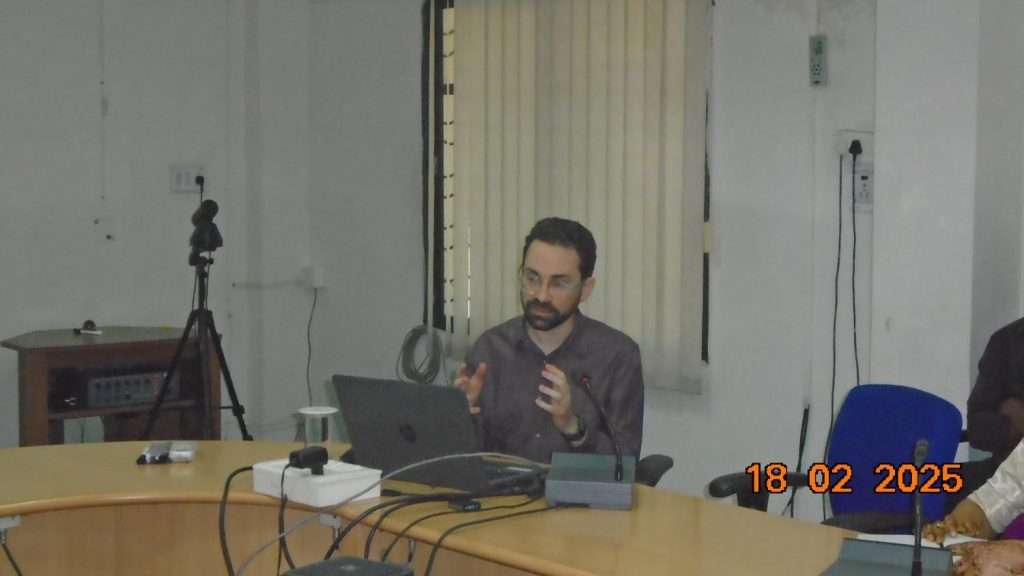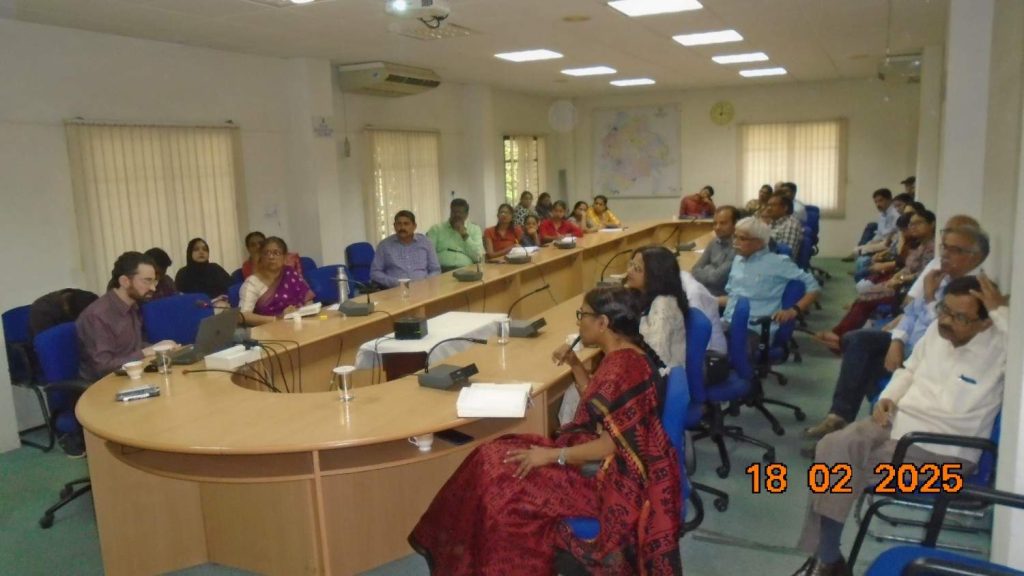

The Division for Graduate Studies (DGS) at the Centre for Economic and Social Studies (CESS) hosted a special lecture titled “The Public Opinion and Electoral Consequences of Political Misconduct” on 18th February 2025. The event commenced with a warm welcome by Dr. Alivelu Kasturi, Dean of DGS, and was chaired by Prof. E. Revathi, Director of CESS.
The keynote lecture was delivered by Adam D. Wolsky, Senior Research Specialist from the Department of Sociology at Princeton University. Wolsky provided an insightful analysis on the downstream consequences of scandals and acts of wrongdoing committed by politicians. The lecture explored how partisanship influences party evaluations when politicians are involved in scandals, with a particular focus on cases of hypocrisy and resignation. The thought-provoking session prompted engaging discussions, offering valuable perspectives on the intersection of political ethics and public perception.
The presentation covered theoretical insights on the impact of political scandals on electoral performance, highlighting mixed findings from observational work, survey experiments, and field studies. Wolsky emphasized how scandals, though not always affecting job performance, could damage political approval depending on factors like economic performance, policies, and gender. Key points included the role of party identification in shaping public reactions to misconduct, differences between the U.S. and Latin American political contexts, and how public opinion shifts could indirectly undermine democracy.
As part of his research, Wolsky shared two important papers that enriched the discussion. The first, “Scandal, Hypocrisy, and Resignation: How Partisanship Shapes Evaluations of Politicians’ Transgressions,” explained how political scandals impact public opinion, with party loyalty influencing how people judge wrongdoing. It also focused on the idea of schadenfreude—taking pleasure in a rival’s misfortune.
The second paper, “Corruption and Political Support: The Case of Peru’s Vacuna-gate Scandal,” examined how corruption weakens democracy by reducing public trust. Using the example of former Peruvian president Martín Vizcarra’s secret early vaccination, the study showed how scandals can shake people’s belief in political systems, especially in weaker democracies.
The lecture ended with a Q&A session, where participants discussed the wide-ranging effects of political misconduct on democracy. The Division for Graduate Studies at CESS thanks Adam D. Wolsky for his engaging talk and all attendees for making the lecture a success.
